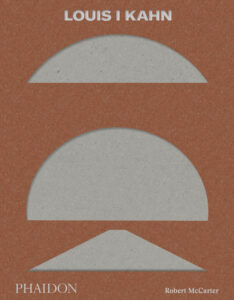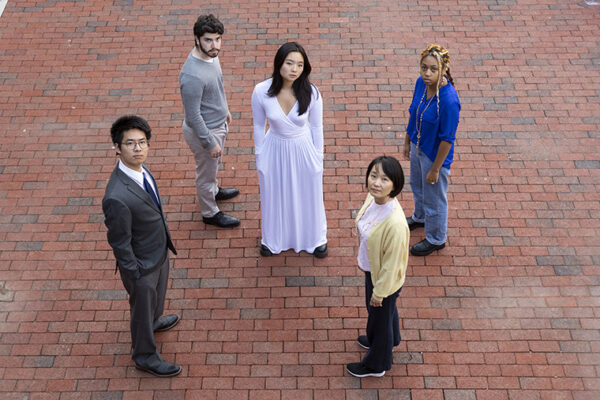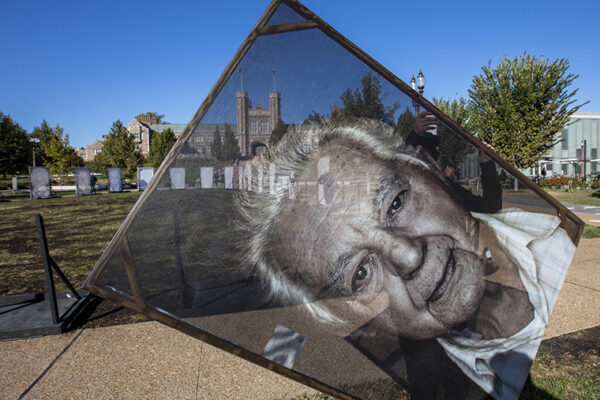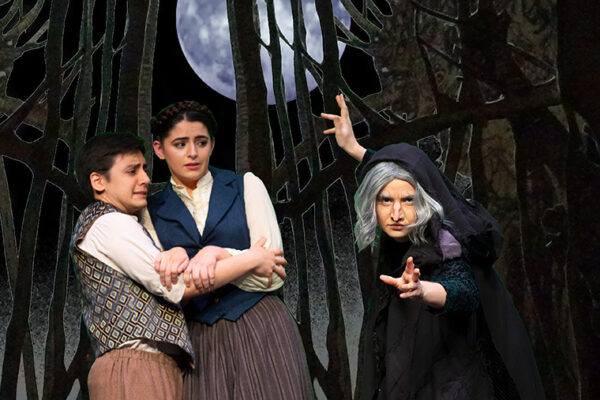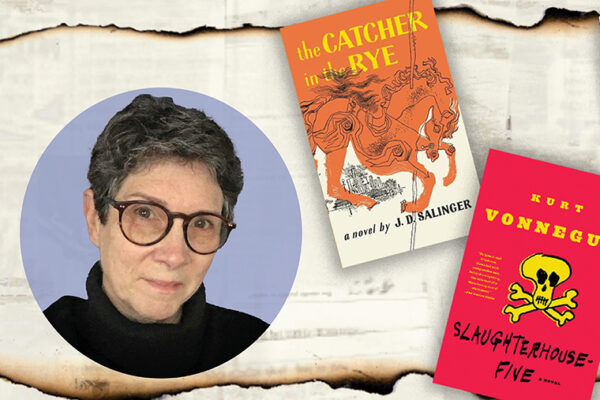Louis I Kahn
Revised and expanded 2nd edition
The significance of the work of Louis I Kahn, one of the greatest influences on post-World War II architecture, has skyrocketed in the twenty-first century. Robert McCarter’s bestselling and critically-acclaimed monograph explains how Kahn redefined Modern architecture and why his work remains a fundamental source for architects and designers today. Now thoughtfully updated, this comprehensive […]
Performing Arts Department presents US premiere of Hsu Yen Ling’s ‘The Dust’
In “The Dust,” Taiwanese playwright Hsu Yen Ling combines six short, genre-bending scenes that together explore “the instant of explosion.” From Nov. 17-20, the Performing Arts Department in Arts & Sciences will present the U.S. premiere of “The Dust,” in a new translation by alumna Annelise Finegan.
Media Advisory: SMOOTH House, new building for occupational therapy, to break ground in Delmar Maker District
On Friday, Nov. 11, a new Smart Home for Occupational Therapy Healing — aka SMOOTH House — will break ground in St. Louis’ Delmar Maker District. Designed by WashU students, this energy efficient, net-zero building will feature research, training and clinical spaces for the School of Medicine’s Occupational Therapy program.
WUHHU presents hip-hop showcase
Washington University Hip Hop Union specializes in commercial dance – the high-energy style that backup dancers typically perform at concerts and in music videos. They will perform, along with other student groups, in a showcase Saturday, Nov. 12.
Occupational therapy clinic breaks ground in Delmar Maker District
Over the last year, a team of architects, medical professionals and engineers from Washington University in St. Louis and Chicago-based architecture firm Skidmore, Owings & Merrill have explored questions about building design and people’s health through interdisciplinary design studios and seminars. Now that research is bearing fruit. On Nov. 11, a new Smart Home for Occupational Therapy Healing — aka SMOOTH House — will break ground in St. Louis’ Delmar Maker District.
Colonies of Paradise
Poems
The first book of poetry by Matthias Göritz to be available in English, in a translation by a renowned writer Very few books of poetry by contemporary German writers are available to English-speaking readers. In “Colonies of Paradise,” acclaimed poet and translator Mary Jo Bang introduces the poems of novelist, poet and translator Matthias Göritz, […]
Media Advisory: Holocaust exhibit preview with artist Luigi Toscano
The Mildred Lane Kemper Art Museum will host a preview of “Lest We Forget,” a large-scale public art installation featuring monumental portraits of Holocaust survivors, beginning at 3:15pm Thursday, Oct. 20. The exhibition will include 12 portraits of survivors now living in the St. Louis area.
‘Into the Woods’ in Edison Theatre
Cinderella wishes for festivals. Jack wishes for food. The baker and his wife wish for a child. The storybook world is filled with longing and magic and the happiest of ever afters. For a while, at least. But what happens once the wishes have all come true?
Taking on censorship
Mary Bartling’s website on banned books aims to help us become better readers and better global citizens.
‘Lest We Forget’ opens Oct. 20
“Lest We Forget,” a public art installation by noted Italian-German photographer Luigi Toscano, will open Oct. 20 in WashU’s Ann and Andrew Tisch Park. The exhibition will feature nearly 100 contemporary, large-scale portraits of Holocaust survivors — including 12 survivors now living in St. Louis.
Older Stories
